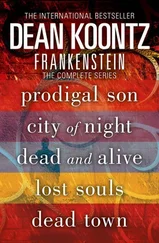As terrible as the situation was for Barty, Agnes knew that it was equally difficult for Paul. She could only hold him in the night, and let herself be held. And more than once, she told him, “If worse comes to worst, don't you go walking again."
“All right,” he agreed, perhaps too easily.
“I mean it. You have a lot of responsibilities here. Barty. Pie Lady Services. People who depend on you. Friends who love you. When you came on board with me, mister, you bought into a whole lot more than you can walk away from."
“I promise, Aggie. But you're not going anywhere."
By the third week of October, she was bedridden.
By the first of November, they moved his mother's bed into the living room, so she could be in the center of things, where always she had been, though they admitted no guests now, only members of their family with its many names.
On the morning of November third, Barty asked Maria to inquire of Agnes what she would like to have read to her. “Then when she answers you, just turn and leave the room. I'll take it from there."
“Take what from there?” Maria asked.
“I have a little joke planned."
Books were stacked high on a nearby table, favorite novels and volumes of verse, all of which Agnes had read before. With time so limited, she preferred the comfort of the familiar to the possibility that new writers and new stories would fail to please. Paul read to her often, as did Angel. Tom Vanadium sat with her, too, as did Celestina and Grace.
This morning, as Barty stood to one side listening, his mother asked Maria for poems by Emily Dickinson.
Maria, puzzled but cooperative, left the room as instructed, and Barty removed the correct book from the stack on the table, without anyone's guidance. He sat in the armchair at his mother's side and began to read:
“I never saw a Moor—never saw the Sea—Yet know I how the Heather looks—And what a Billow be."
"
Pulling herself up in the bed, peering at him suspiciously, she said, “You've gone and memorized old Emily."
“Just reading from the page,” he assured her.
“I never spoke with God—Nor visited in Heaven—Yet certain am I of the spot—As if the Checks were given."
“Barty?” she said wonderingly.
Thrilled to have inspired this awe in her, he closed the book. “Remember what we talked about a long time ago? You asked me how come, if I could walk where the rain wasn't. . . “
". . . then how come you couldn't walk where your eyes were healthy and leave the tumors there,” she remembered.
“I said it didn't work that way, and it doesn't. Yet ... I don't actually walk in those other worlds to avoid the rain, but I sort of walk in the idea of those worlds. . . ."
“Very quantum mechanics,” she said. “You've said that before."
He nodded. “The effect not only comes before a cause in this case, but completely without a cause. The effect is staying dry in the rain, but the cause-supposedly walking in a dryer world-never occurs. Only the idea of it."
“Weirder even than Tom Vanadium made it sound."
“Anyway, something clicked in me on the roller coaster, and I grasped a new angle of approach to the problem. I've figured out that I can walk in the idea of sight, sort of sharing the vision of another me, in another reality, without actually going there.” He smiled into her astonishment. “So what do you say about that?"
She wanted so badly to believe, to see her son made whole again, and the funny thing was that she could believe, and without emotional risk, because it was true.
To prove himself, he read a little of Dickens when she requested it, a passage from Great Expectations. Then a passage from Twain.
She asked him how many fingers she was holding up, and he said four, and four it was. Then two fingers. Then seven. Her hands so pale, the palms both bruised.
Because his lacrimal glands and tear ducts were intact, Barty could cry with his plastic eyes. Consequently, it didn't seem all that much more incredible to be seeing with them.
This trick, however, was far more difficult than walking where the rain wasn't. Sustaining vision took both a mental and physical toll from him.
Her joy was worth the price he paid to see it.
As mentally demanding and stressful as it was to maintain this borrowed sight, the harder thing was looking once more upon her face, after all these years of blindness, only to see her gaunt, so pale. The vital, lovely woman whose image he had guarded so vigilantly in memory would be nudged aside hereafter by this withered version.
They agreed that to the outside world, Barty must continue to appear to be a sightless man-or otherwise either be treated like a freak or be subjected, perhaps unwillingly, to experimentation. In the modern world, there was no tolerance for miracles. Only family could be told of this development.
“If this amazing thing can happen, Barty-what else?"
“Maybe this is enough."
“Oh, it certainly is! It certainly is enough! But ... I don't regret much, you know. But I do regret not being here to see why you and Angel have been brought together. I know it'll be something lovely, Barty. Something so fine."
They had a few days for quiet celebration of this astonishing recovery of his sight, and in that time, she never tired of watching him read to her. He didn't think she even listened closely. It was the fact of him made whole that lifted her spirits so high as they were now, not any writer's words nor any story ever written.
On the afternoon of November ninth, when Paul and Barty were with her, reminiscing, and Angel was in the kitchen, getting drinks for them, his mother gasped and stiffened. Breathless, she paled past chalk, and when she could breathe and speak again, she said, “Get Angel now. No time to bring the others."
The three of them, gathered around her in the quick, held fast to her, as if Death couldn't take what they refused to release.
To Paul, she said, “How I loved your innocence ... and giving you experience."
“Aggie, no,” he pleaded.
“Don't start walking again,” she reminded him.
Her voice grew thinner when she spoke to Angel, but in this new frailty, Barty heard such love that he shook at the power of it. “God's in you, Angel, so strong you shine, and nothing bad at all."
Unable to speak, the girl kissed her and then gently placed her head against Agnes's breast, capturing forever in memory the pure sound of her heart.
“Wonderboy,” Agnes said to Barty.
“Supermom."
“God gave me a wonderful life. You remember that."
Be strong for her. “All right."
She closed her eyes, and he thought that she was gone, but then she opened them again. “There is one place beyond all the ways things are."
“I hope so,” he said.
“Your old. Mom wouldn't lie to you, would she?"
“Not my old mom."
“Precious ... boy."
He told her that he loved her, and she slipped away upon his words. As she went, the haggard look of the terminal leukemic patient passed from her, and before the gray mask of death replaced it, he saw the beauty he had preserved in memory when he was three, before they took his eyes, saw it so briefly, as if something transforming welled out of her, a perfect light, her essence.
Out of respect for his mother, Barty struggled to hold fast to his eyeless second sight, living in the idea of a world where he still had vision, until she had been accorded the honors she deserved and had been laid to rest beside his father.
He wore his dark blue suit on the day.
He went in a pretense of blindness, gripping Angel's arm, but he missed nothing, and etched every detail in his memory, against the need of them in the coming dark.
She was forty-three, so young to have left such a mark upon the world. Yet more than two thousand people attended her funeral service-which was conducted by clergymen of seven denominations-and the subsequent procession to the cemetery was so lengthy that some people had to park a mile away and walk. The mourners streamed across the grassy hills and among the headstones for the longest time, but the presiding minister did not begin the graveside service until all had assembled. None here showed impatience at the delay. Indeed, when the final prayer was said and the casket lowered, the crowd hesitated to depart, lingering in the most unusual way, until Barty realized that like he himself, they half expected a miraculous resurrection and ascension, for among them had so recently walked this one who was without stain.
Читать дальше











